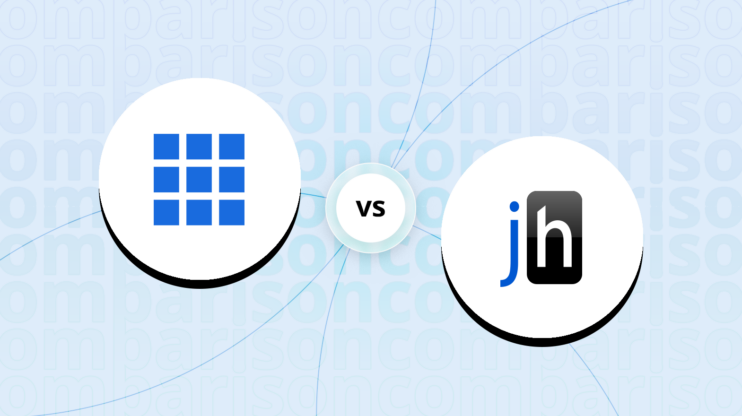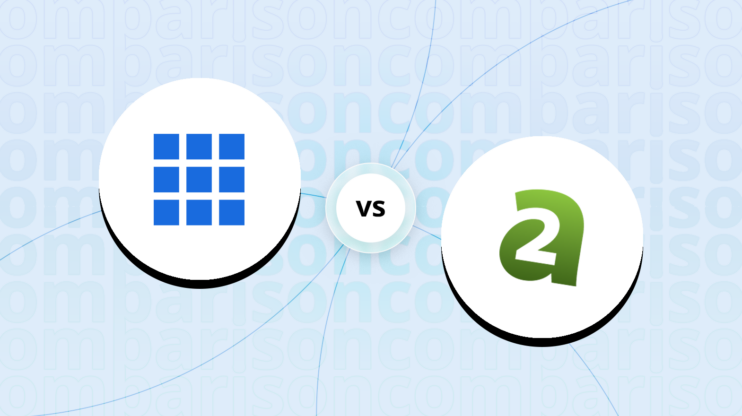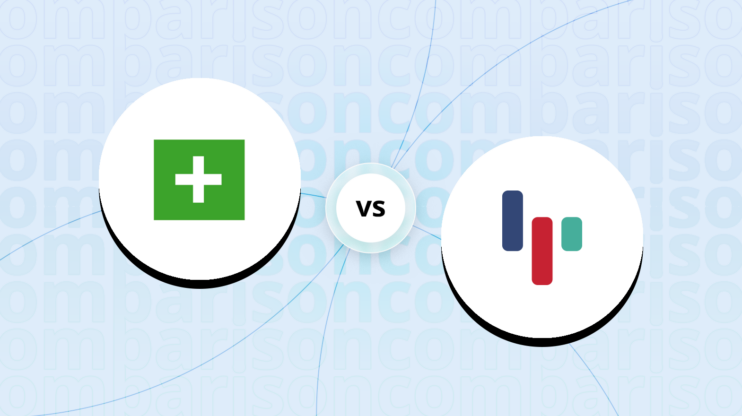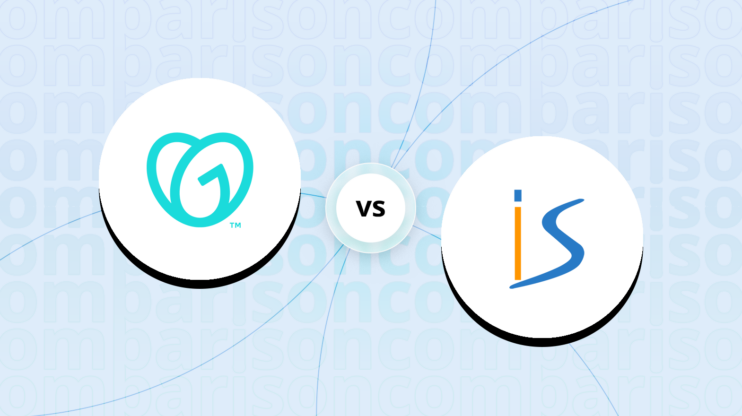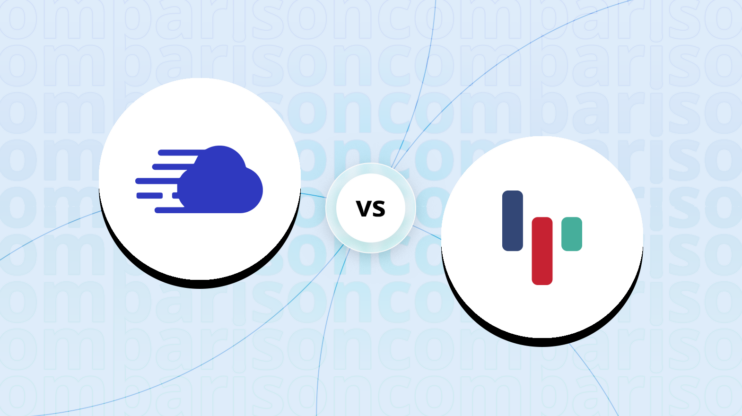Namecheap vs MonoVM: Final verdict
Looking over Namecheap vs. MonoVM, it’s clear why both hosts are so popular. They have both hosted millions of
websites that run on WordPress for decades, building up a loyal customer base.
-
MonoVM (Overall grade: 6.9)
offers a solid choice for high-traffic websites and e-commerce solutions due to its 99.99% uptime guarantee and advanced features like MariaDB and daily backups. Its enterprise-level hardware and extensive global data centers enhance reliability and performance. However, the lack of a built-in website builder and a more detailed user management system might limit its appeal for less technical users or those requiring a comprehensive all-in-one solution.
Namecheap (Overall grade: 7.2)
shines with its user-friendly website builder, extensive security features, and competitive pricing on a variety of hosting plans. It provides valuable tools for both beginners and technical users, such as free SSL certificates for the first year and robust email hosting. While it may experience occasional downtimes and slightly slower loading speeds on shared hosting plans, its overall package and straightforward interface make it a strong contender for small to medium-sized businesses and personal projects.
 Overall grade:7.2 |
 Overall grade:6.9 |
|
|---|---|---|
| Uptime and Availability | 8.0 | 8.6 |
| Hosting Performance | 8.2 | 7.2 |
| Hosting Security | 8.5 | 8.3 |
| Price | 8.7 | 8.7 |
| Hosting Features | 7.5 | 4.7 |
| Ease Of Setup | 8.8 | 8.9 |
| User Management | 0.0 | 0.0 |
| Customer Support | 8.0 | 8.9 |
| User feedback | 4.3/5 | 4.5/5 |
Hosting types offered
Both platforms provide a variety of hosting types, each designed to meet the different needs of users.
 |
 |
|
|---|---|---|
| Shared hosting | ||
| Cloud hosting | ||
| WordPress hosting | ||
| Ecommerce hosting | ||
| VPS hosting | ||
| Dedicated hosting |
Although both offer a variety of hosting plans tailored to different needs, in certain cases, one platform may prove to be more suitable.
Detailed comparison
Uptime and availability
Evaluates the average uptime statistics, uptime guarantee and overall availability of the hosting
provider
Score Components:
- Uptime percentage (30%): evaluates the uptime statistics in given period of time
- Uptime guarantee (20%): Assesses if the platform offers an uptime guarantee and
whether the actual uptime matches the promised guarantee. - General performance (25%): Evaluates how fast is the average response time and overall
it’s stability. - Responsiveness (10%): Adaptability to different devices and screen sizes.
- Availability (25%): Reflects the total downtime and number of outages.
 8.0
8.0
 8.6
8.6
Winner MonoVM: MonoVM leads with its remarkable global coverage and strong uptime credentials.

Namecheap boasts a 100% uptime guarantee for several account types and shows impressive uptime in various tests. Despite the guarantee, recent tests indicate an average uptime of 99.96%, with some downtime recorded. The response time, monitored by tools like Uptime.com, stands at an average of 1.05 seconds, slightly above average. Compensation for downtime is offered, adding a layer of customer assurance.

MonoVM offers a 99.99% uptime guarantee, supported by enterprise-level hardware and daily backups. With 10 global data centers and extensive server locations across several countries, it ensures high availability. The 24/7 customer support and diverse OS support add to its reliability. Despite minor drawbacks like no website builder, MonoVM’s strong uptime and robust infrastructure make it a standout choice.
Which one has better hosting performance?
Score Components:
- Hosting speed (30%): This includes SSD quality, Load times, PageSpeed score ranges,
additional information on website speed, built-in plugins for performance enhancement, available caching
methods, and CPU/RAM options - CDN (20%): Considers whether CDN is available or not, whether it’s free or paid, and
the quality of the CDN service - Available data centers (30%): Evaluates the number of data centers and their locations
globally. - Scalibility (20%): Looks at whether elastic scaling is available, the process required
to scale (manual upgrade vs. automatic scaling), the presence of dedicated servers, and the costs
associated with scaling.
 8.2
8.2
 7.2
7.2
🏆 Winner Namecheap: High reliability and features at competitive prices
Comparing the general performance of Namecheap and MonoVM, Namecheap provides extensive SSD storage options and solid uptime across its shared, VPS, and WordPress hosting plans. MonoVM also uses enterprise-grade SSDs in RAID10 configuration, ensuring fast load times. Namecheap offers built-in plugins like free CDN and SSL certificates, while MonoVM includes Imunify 360 for robust security features. Both have multiple datacenter locations but Namecheap lists specific regions such as the US, EU, and UK, while MonoVM’s data center locations are unspecified.
Website Speed
Namecheap’s WordPress hosting boasts a fully loaded time of 0.7 seconds and a Time to First Byte of 192 milliseconds, making it noticeably fast. In contrast, MonoVM doesn’t provide specific timing metrics but mentions the use of high-performance hardware for improved speeds. Namecheap’s shared and VPS hosting plans maintain an impressive 99.9% uptime, closely matched by MonoVM’s 99.99% uptime guarantee. Both offer free CDN to enhance load times, but Namecheap’s in-built optimized speeds give it an edge.
Scalability
Namecheap provides a range of scaling options across its plans, but upgrades require changing to higher-tier plans. Namecheap doesn’t specify automatic scaling features. MonoVM’s scalability is achieved through managed hosting plans, which include VIP support and various automation tasks. However, the exact cost of scaling and the availability of dedicated servers are not detailed. MonoVM does support multiple operating systems, which could aid in scaling depending on user requirements.
Which one has better security features?
and regulatory requirements
Score Components:
- Technical security measures (40%): This includes encryption, firewalls, DDoS
protection, secure configurations, server monitoring, access control and availability of security addons
(e.g Sitelock security). - Operational security measures (30%): Encompasses data privacy, backups and data
redundancy. - Compliance and certifications (20%): Adherence to legal and regulatory requirements
(e.g., GDPR, HIPAA) and possession of certifications (e.g., ISO 27001, SOC 2). - Business and reliability (10%): Factors in the provider’s reputation, uptime
guarantees, and customer support.
 8.5
8.5
 8.3
8.3
🏆 Winner
Namecheap: Offers extensive security features and robust compliance measures.
Both Namecheap and MonoVM, have notable differences in their approaches to technical and operational
security, as well as in their compliance with regulations.
Technical security measures:
Namecheap supports a variety of SSL certificates including DV, OV, and EV, which cater to different security needs ranging from personal websites to e-commerce platforms. It also provides advanced features like Two-Factor Authentication (2FA), Hotlink Protection, and Leech Protect aimed to secure user data and prevent brute-force attacks. MonoVM ensures website security with Imunify 360, which offers firewall protections, malware scanning, and TLS/SSL management. MonoVM includes two-factor authentication and automatic backups, adding layers to its security portfolio. Both providers support multiple PHP versions, but Namecheap specifies versions from PHP 5.X to PHP 8.X, offering more clarity.
Operational security measures:
Namecheap offers domain privacy and PremiumDNS, which ensures secured DNS services globally for less than $5 a year. It also includes email protective measures like Jellyfish Spam Protection and SPF/DKIM for email authentication. MonoVM focuses on robust data encryption for email hosting and provides regular malware scanning for added security. Both employ two-factor authentication and daily to monthly automatic backups, but Namecheap extends additional protections like BoxTrapper to filter spam emails directly.
Compliance and certifications:
Namecheap details its compliance with GDPR rights, including data access, rectification, and the right to be forgotten. While PCI compliance isn’t explicitly stated, features like SSL certificates and 2FA contribute to such standards. MonoVM does not provide specific details on GDPR or PCI compliance, but its security features suggest an adherence to high-security practices. No information is available for HIPAA compliance for either provider, reflecting a potential gap in their detailed compliance offerings.
 |
 |
|
|---|---|---|
SSL certificate |
Multiple types (DV, OV, EV) |
Free SSL with various plans |
Additional security features |
Extensive, including VPN, spam protection, PremiumDNS, email authentication systems |
Imunify 360, firewall, malware scanning, data encryption |
PHP versions |
PHP 5.X to PHP 8.X |
Various, not specified |
GDPR compliance |
Yes |
Not specified |
HIPAA compliance |
Not specified |
Not specified |
PCI compliance |
Not specified |
Not specified |
Hosting features
Score Components:
- Domains (20%): Assesses the availability of a free domain, domain purchase options, and
pricing - Email (15%): Considers if the provider offers full email hosting, or is reselling
third-party service, and if the email is only transactional or not - Website builder (15%): Checks if website builder is available, and it’s user
friendliness and overall the level of customization allowed. - Staging environment (20%): Determines if a staging environment is available, allowing
for testing changes before going live. - FTP & SFTP accounts (10%): Evaluates if and how easily users can access FTP and
SFTP accounts - Git and SSH access (20%): Assess whether Git is integrated into the hosting service and
if SSH access is provided
 7.5
7.5
 4.7
4.7
🏆 Winner Namecheap: Offers extensive features at competitive prices.
When comparing Namecheap and MonoVM, both hosting providers bring unique strengths to the table. Namecheap offers a variety of plans with a user-friendly website builder, making it easy for users to create and customize their websites without extensive technical knowledge. This is particularly beneficial for small businesses or personal projects that require a straightforward setup. Notably, Namecheap provides several features for free, including SSL certificates for the first year and email hosting, which add value for customers on a budget.
On the other hand, MonoVM’s noteworthy features include its SSD RAID 10 technology and MariaDB for reliable database management. While MonoVM may lack a specific mention of a website builder, it excels in automation and security, catering to enterprises needing robust performance and uptime guarantees. This provider also offers daily backups and free domain registration, appealing to those who prioritize security and backup efficiency. MonoVM, however, doesn’t explicitly mention FTP/SFTP, which could be crucial for users needing seamless file transfers.
 |
 |
|
|---|---|---|
Free domain |
No |
Yes |
Free SSL |
Yes, for the first year |
Yes |
Email hosting |
Yes |
Yes |
Website builder |
Yes |
No |
Staging environment |
No |
No |
FTP & SFTP accounts |
Yes |
Yes (implied with SSH) |
Git and SSH access |
Yes |
Yes |
Free backup |
Yes |
Yes |
Money back guarantee |
30 days |
Not specified |
a location.
As a result in rare cases the features mentioned here can differ from the ones you see on their websites.
Both providers support a range of users from beginners to experts with user-friendly website builders and WordPress staging areas. However, in terms of developer tools, both Namecheap and MonoVM offer robust options including SSH access, support for multiple programming languages, and Git for version control, thus appealing to developers looking for advanced capabilities.
Email services:
Email services at Namecheap provide extensive email features, including up to 30 mailboxes on basic plans and unlimited on higher-tier plans. The hosting includes tools like SpamAssassin, Jellyfish Spam Protection, and webmail options like Horde, Squirrelmail, and RoundCube. Namecheap’s email services are suited for both transactional emails and comprehensive email hosting needs. MonoVM offers mailbox management, but lacks the detailed email hosting features of Namecheap, focusing more on basic email management associated with each domain.
Price
Score Components:
- Plan value (40%): What each pricing tier offers.
- Transparency and clarity (30%): Clearness of pricing structures.
- Flexibility of plans (20%): Range of options to suit different budgets.
- Hidden costs (10%): Additional expenses not included in the plan.
 8.7
8.7
 8.7
8.7
🏆 Winner Namecheap:Competitive pricing with a range of features making it suitable for various needs.
Evaluating the pricing of plans among various hosting providers can be complex due to their differing pricing and renewal strategies. Additionally, certain plans require annual commitments, which adds to the difficulty of making comparisons. The prices listed are based on monthly commitments; plans requiring annual commitments are indicated. Additionally, although some providers offer identical plans for WordPress and shared hosting, we have created separate tables for each to enhance clarity.
Namecheap offers a variety of cost-effective plans across shared, reseller, WordPress, and dedicated hosting, featuring free domain names, SSL certificates, and website migration services. In contrast, MonoVM provides managed WordPress hosting with extensive support options and security features. Namecheap’s WordPress plans are competitively priced and include performance boosters like CDN and extra CPU and RAM capacities. MonoVM, with slightly higher starter prices, focuses on managed solutions with VIP support and multiple configuration services, making it suitable for users desiring more hands-on assistance. Comparing shared hosting, Namecheap presents lower introductory prices with a comprehensive set of features, while MonoVM focuses on more straightforward configurations. Both providers show strong price-performance ratios, with standout features tailored to different user needs.
 |
 |
|---|---|
|
EasyWP Starter$6.88
1X Website, 10 GB SSD, 50K Visitors, Free CDN, Free SSL, Dashboard, Safe, Secure, SFTP, Backup & Restore |
WordPress Web Hosting Eco$2.99
1 Website, 5 GB Web Storage, Unlimited Traffic, SSL Certificate, MariaDB, Free Setup, Free CXS, ImunifyAV |
|
EasyWP Turbo$12.88
1X Website, 50 GB SSD, 200K Visitors, More CPU & RAM, Free CDN, Free SSL, Dashboard, Safe, Secure, SFTP, Backup & Restore |
WordPress Web Hosting Plus$3.99
1 Website, 10 GB Web Storage, Unlimited Traffic, SSL Certificate, Free Domain, Free Setup, Free CXS, ImunifyAV |
|
EasyWP Supersonic$19.88
1X Website, 100 GB SSD, 500K Visitors, More CPU & RAM, Free CDN, Free SSL, Dashboard, Safe, Secure, SFTP, Backup & Restore |
WordPress Web Hosting Pro$4.99
1 Website, 20 GB Web Storage, Unlimited Traffic, SSL Certificate, Free Domain, Free Setup, Free CXS, ImunifyAV, Litespeed Cache |
 |
 |
|---|---|
|
Stellar$4.48
3 Websites, 20 GB SSD, 30 Mailboxes, Website Builder, Free SSL, Free Domain, Free CDN, Free Migration, 30-Day Guarantee |
Linux Web Hosting Eco$2.09
1 Website, 5 GB Web Storage, Free Data Transfer, Free SSL, 25 Sub Domains |
|
Stellar Plus$6.48
Unlimited Websites, Unmetered SSD, Unlimited Mailboxes, AutoBackup, Website Builder, Free SSL, Free Domain, Free CDN, Free Migration, 30-Day Guarantee |
Linux Web Hosting Plus$2.99
1 Website, 10 GB Web Storage, Free Data Transfer, Free SSL, Free Domain, 50 Sub Domains |
|
Stellar Business$9.48
Unlimited Websites, 50 GB SSD, Unlimited Mailboxes, AutoBackup & Cloud Storage, Website Builder, Free SSL, Free Domain, Free CDN, Free Migration, 30-Day Guarantee |
Linux Web Hosting Pro$3.99
1 Website, 15 GB Web Storage, Free Data Transfer, Free SSL, Free Domain, Unlimited Sub Domains |
|
Linux Web Hosting Super$4.99
1 Website, 20 GB Web Storage, Free Data Transfer, Free SSL, Free Domain, Unlimited Sub Domains |
 |
 |
|---|---|
|
Cloud 1$29.99*
1 Website, 100% Network Uptime, 10GB SSD Storage, 2vCPU Compute Power, 24/7 Priority Support Voice Chat |
Jump Start$100
4 CPU Cores, 8GB Memory, 40GB SSD Space, 5TB Data Transfer |
|
Cloud 10$49.99*
10 Websites, 100% Network Uptime, 125GB SSD Storage, 20vCPU Compute Power, 24/7 Priority Support Voice Chat |
Business$200
8 CPU Cores, 12GB Memory, 80GB SSD Space, 5TB Data Transfer |
|
Cloud 25$89.99*
25 Websites, 100% Network Uptime, 175GB SSD Storage, 75vCPU Compute Power, 24/7 Priority Support Voice Chat |
Business Plus$300
12 CPU Cores, 16GB Memory, 120GB SSD Space, 5TB Data Transfer |
|
Cloud 50$109.99*
50 Websites, 100% Network Uptime, 225GB SSD Storage, 150vCPU Compute Power, 24/7 Priority Support Voice Chat |
Super Power$400
16 CPU Cores, 20GB Memory, 160GB SSD Space, 5TB Data Transfer |
Enterprise plans
Namecheap’s advanced dedicated server plans provide full root access, customizable configurations, and extensive support options, making them ideal for high-traffic websites, content streaming, and specialized needs like machine learning and game servers. MonoVM, while not focusing on dedicated servers, emphasizes managed WordPress solutions with comprehensive support and robust security features, catering more towards websites requiring intensive managerial and configuration services.
Namecheap vs MonoVM: Ease of setup
platform.
Score Components:
- Site migration (25%): Assesses whether the provider offers tools for site migration,
either automated or manual, and whether these services are free or require a fee. - Admin panel usability (35%): Evaluates the type of admin panel provided, such as the
standard cPanel or a custom solution, focusing on its accessibility and user-friendliness for both
technical and non-technical users. - Setup features (20%): Examines the availability and ease of use of various setup
features, including FTP accounts, file managers, email account setup, PHPMyAdmin, and easy CDN
configuration. - Help center quality (20%): Measures the quality and accessibility of the provider’s
help center resources, including articles and tutorials.
 8.8
8.8
 8.9
8.9
🏆 Winner Namecheap: A user-friendly interface with extensive support options.
Namecheap offers a highly accessible and user-friendly admin panel experience. Their EasyWP dashboard provides a custom interface tailored to simplify website management tasks, such as domain connection and backups, without the need for cPanel. This setup is ideal for both technical and non-technical users, providing a seamless experience. Those preferring cPanel can still access it through other Namecheap plans, maintaining familiarity for experienced users. The instant setup feature minimizes setup time, allowing users to start building their websites almost immediately.
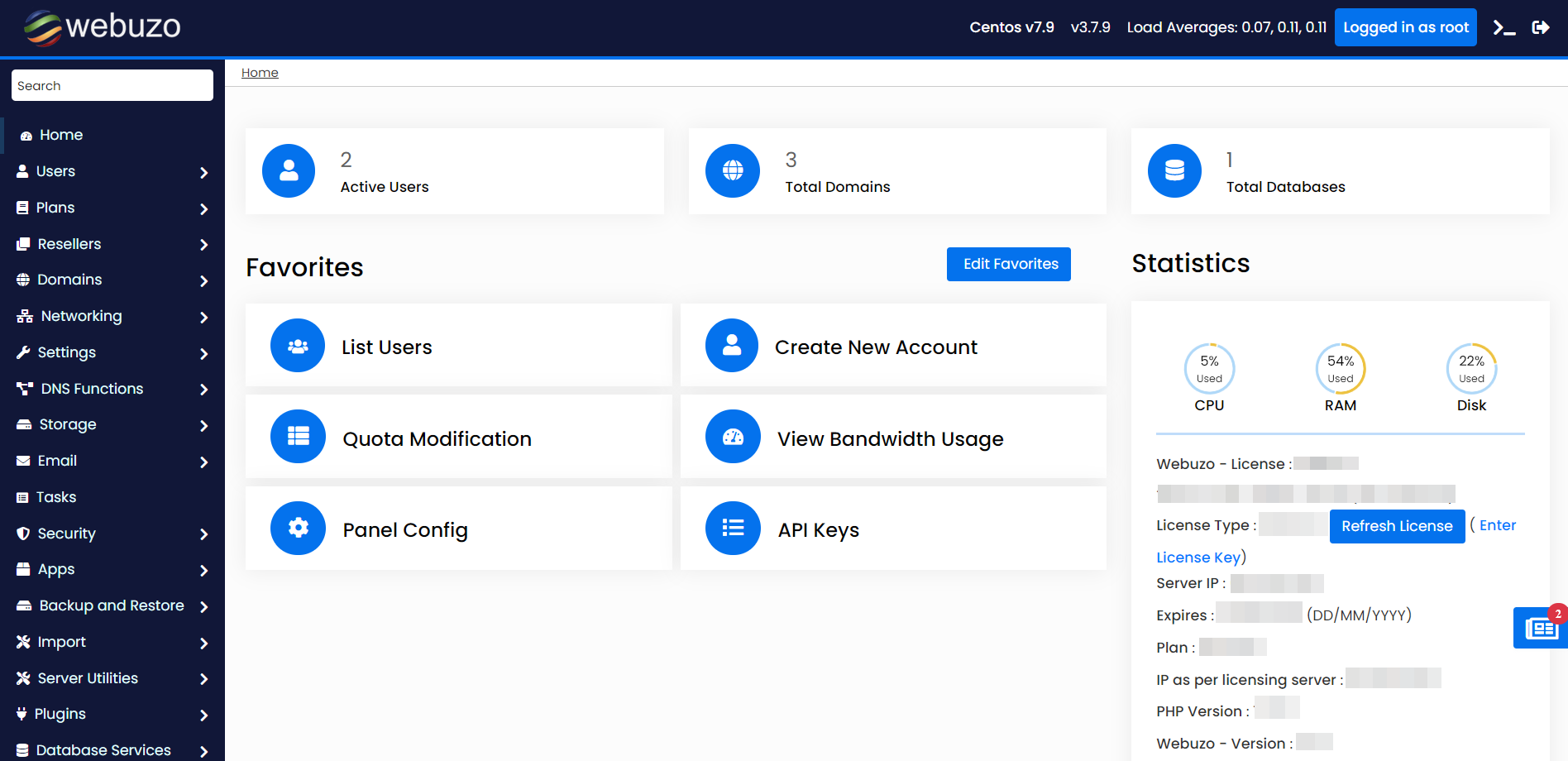
MonoVM, on the other hand, relies on the standard cPanel control panel for managing websites. cPanel is a widely known and intuitive interface, particularly for those with some technical background. It simplifies hosting tasks such as CMS installation, email setup, and subdomain configuration. For beginners, the familiarity and extensive resources of cPanel can be reassuring. Both platforms ensure ease of use, but Namecheap’s customized EasyWP dashboard offers an edge in simplicity for non-technical users.

Both hosting providers offer free website migration services, simplifying the transition process for users. Namecheap uses the All-in-One WP Migration plugin to facilitate seamless site transfers, ensuring compatibility with various web hosts. MonoVM provides expert-assisted migration, handling the technical details to ensure smooth transitions. Both approaches are effective and user-friendly, catering to different user preferences.
Namecheap’s help center provides extensive resources, including a comprehensive knowledge base, 24/7 live chat, and a support ticket system secured by SSL encryption. MonoVM offers a knowledge base, 24/7 support by certified IT experts, and VIP support for personalized assistance. Both platforms have robust support systems, but the customized support and extensive articles available with Namecheap’s help center provide a slight edge in support quality and accessibility.
User management
accessibility.
Score Components:
- Role customization (40%): Flexibility in creating and defining user roles and
permissions. - Ease of management (30%): User interface and tools for managing users.
- Access control (20%): Effectiveness of access control measures for different user
levels. - Scalability (10%): Ability to manage a growing number of users efficiently.
 0.0
0.0
 0.0
0.0
🏆 Winner Namecheap: A platform providing superior user management capabilities.
When we compare Namecheap and MonoVM on their abilities to manage user roles, permissions, and accessibility, Namecheap stands out as a robust option. While we have no specific information about MonoVM’s user management features, Namecheap offers a structured approach in creating and defining user roles, ensuring that administrators can easily assign and adjust permissions as required. This platform is likely to provide various predefined roles which can be customized, giving users the flexibility to delegate tasks efficiently. MonoVM’s details on this aspect remain uncertain, making Namecheap a preferable choice for those requiring detailed role management.
Namecheap offers an intuitive user interface designed to simplify user management. Administrators can quickly navigate through the control panel to add, edit, and delete users while assigning specific roles. The tools provided are user-friendly, focusing on enhancing productivity and minimizing the learning curve for new users. On the other hand, without detailed information, it’s challenging to accurately judge MonoVM’s interface, though it could be inferred that it may not match Namecheap’s ease of use.
In terms of access control measures, Namecheap demonstrates efficiency in managing user access and permissions. This platform is built to handle a growing number of users without compromising security or performance. It provides a robust system to track user activities and enforce access control policies, ensuring data integrity. Again, without explicit details on MonoVM’s capabilities in this area, Namecheap appears to be the more reliable option for businesses looking to scale their operations smoothly.
Namecheap user roles table:
| Role | Description | Access highlights |
|---|---|---|
| Administrator | Full control over the hosting account. | Can create, delete, and manage all user roles and settings. |
| Editor | Manages content and user-generated content. | Can modify site content but has limited access to account settings. |
| Contributor | Contributes new content for review. | Can create new content but cannot publish without approval. |
| Subscriber | Has limited interaction capabilities. | Can view content and post comments, with no administrative privileges. |
Customer support
hosting provider.
Score Components:
- Support communication channels (30%): Measures the variety of customer support types
provided (live chat, chatbot, email, phone, etc.) - Availability (20%): Assesses the availability hours for each channel, including 24/7
support options. - Technical support quality (30%): Assesses whether the provider offers comprehensive
technical support, including hardware upgrades (e.g., HDD to SSD), software installations, and web
server configuration changes. - Enterprise support (20%): Checks if there are dedicated or priority support services
for enterprise-level customers.
 8.0
8.0
 8.9
8.9
🏆 Winner MonoVM: Offering a wide array of advanced support options and daily backups.
 |
 |
|
|---|---|---|
Phone support |
||
Live chat support |
||
Chatbot |
||
Email/ticket support |
||
Enterprise support (dedicated agent, priority support) |
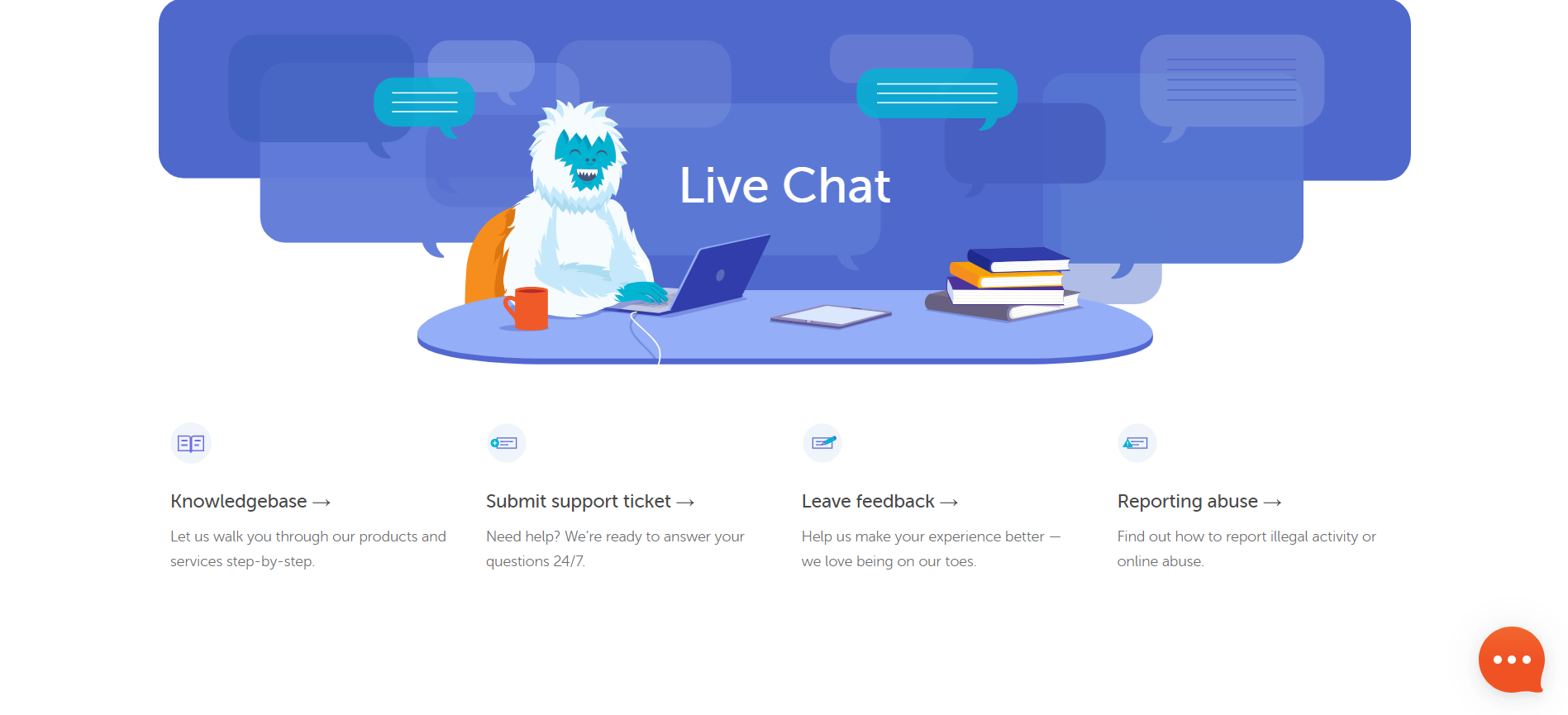
Namecheap and MonoVM both provide 24/7 customer support but differ in their approach. Namecheap offers support through live chat, email, and a comprehensive knowledge base. The absence of phone support and the possibility of being redirected to the ticketing system by live chat agents are areas of concern for some users.

MonoVM, on the other hand, offers phone support and VIP support options, delivering a more direct and potentially faster customer service experience. MonoVM supports advanced security measures, server configurations, and regular monitoring, making it a solid choice for those who need extensive technical assistance.
Namecheap vs MonoVM: User feedback
Namecheap is highly appreciated for its affordability, reliable web hosting, and excellent customer support, available 24/7 via live chat. Users commend the inclusion of free SSL certificates and quality cPanel features, making it ideal for beginners and small to medium-sized businesses. However, some dissatisfaction is noted with the shared hosting plans, which are reported to have slow loading speeds and stability issues. Additionally, there are occasional concerns about the complexity of the user interface and the lack of multilingual support.
MonoVM is recognized for offering an affordable array of services, including VPS hosting, web hosting, domain registration, and SSL certificates. Users appreciate its reliability and the user-friendly interfaces that ease account management and support access. However, some customers note that MonoVM lacks certain advanced features and customization options, particularly in higher-tier plans, and may experience limitations in resource scaling and upgrading. Additionally, there are mentions of compromised customer support quality.
Namecheap vs MonoVM: FAQ
Which platform is better suited for hosting WordPress websites?
Namecheap is better suited for hosting WordPress websites due to its EasyWP hosting plans that offer specific tools and faster performance targeted towards WordPress users. MonoVM also supports WordPress hosting but doesn’t provide the same level of optimization or specific WordPress tools as Namecheap, making Namecheap a preferable option for WordPress sites.
Which hosting service offers better security features?
Namecheap offers extensive security features, including various SSL certificates, Two-Factor Authentication (2FA), Hotlink Protection, and Leech Protect. MonoVM provides robust security with Imunify 360, offering firewall protections and malware scanning. Both offer strong security, but Namecheap’s wider range of features gives it an edge.
Which service is more suitable for hosting a high-traffic website?
MonoVM is more suitable for hosting a high-traffic website thanks to its high-performance dedicated servers, 99.99% uptime guarantee, enterprise-level hardware, and extensive global data centers. Namecheap, while reliable, is better suited for small to medium-sized businesses rather than high-traffic websites.
How do the providers handle email hosting and what features are included?
Namecheap includes extensive email features like up to 30 mailboxes on basic plans and unlimited mailboxes on higher-tier plans, along with tools like SpamAssassin and Jellyfish Spam Protection. MonoVM provides basic mailbox management but lacks the detailed email hosting features of Namecheap, which focuses more on comprehensive email hosting needs.
Which hosting service offers more scalability options for growing websites?
Namecheap provides a range of scalable plans across its shared, VPS, and WordPress hosting options, though upgrades typically require changing to higher-tier plans. MonoVM offers managed hosting with various automation tasks but doesn’t detail exact scaling costs. Namecheap’s clarity in scaling options makes it more user-friendly for growing websites.
The making of this blog
We followed a clear, step-by-step process to write and research this article.










